Related Research Articles

Robert Calvin Bland, known professionally as Bobby "Blue" Bland, was an American blues singer.

Sam & Dave were an American soul and R&B duo who performed together from 1961 until 1981. The tenor (higher) voice was Sam Moore and the baritone/tenor (lower) voice was Dave Prater (1937–1988).
The music of Louisiana can be divided into three general regions: rural south Louisiana, home to Creole Zydeco and Old French, New Orleans, and north Louisiana. The region in and around Greater New Orleans has a unique musical heritage tied to Dixieland jazz, blues, and Afro-Caribbean rhythms. The music of the northern portion of the state starting at Baton Rouge and reaching Shreveport has similarities to that of the rest of the US South.
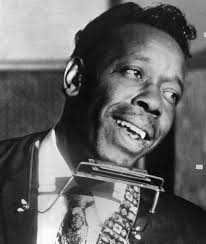
Slim Harpo was an American blues musician, a leading exponent of the swamp blues style, and "one of the most commercially successful blues artists of his day". He played guitar and was a master of the blues harmonica, known in blues circles as a "harp". His most successful and influential recordings included "I'm a King Bee" (1957), "Rainin' in My Heart" (1961), and "Baby Scratch My Back" (1966), which reached number one on Billboard's R&B chart and number 16 on its broader Hot 100 singles chart.

Percy Tyrone Sledge was an American R&B, soul and gospel singer. He is best known for the song "When a Man Loves a Woman", a No. 1 hit on both the Billboard Hot 100 and R&B singles charts in 1966. It was awarded a million-selling, Gold-certified disc from the RIAA.
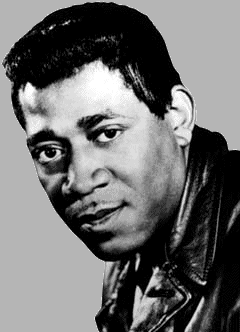
James Edward Carr was an American R&B and soul singer, described as "one of the greatest pure vocalists that deep Southern soul ever produced."

Joe Simon was an American soul and R&B musician. He began as a gospel artist singing with the Golden West Singers in the Bay Area in California. A consistent presence on the US charts between 1964 and 1981, Simon charted 51 U.S. Pop and R&B chart hits between 1964 and 1981, including eight times in the US top forty, thirty-eight times in the top 40 of the US R&B charts, and 13 chart hits in Canada. His biggest hits included three number one entries on the US Billboard R&B chart: "The Chokin' Kind" (1969), "Power of Love" (1972), and "Get Down, Get Down " (1975). In 2021, he was one of the 60 nominees for the National Rhythm & Blues Hall of Fame.
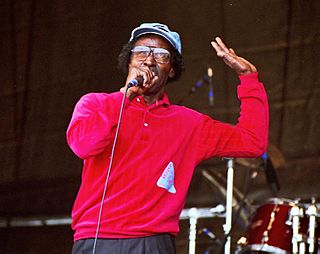
Laten John Adams Jr., was an American blues, jazz and gospel singer, known as "The Tan Canary" for the multi-octave range of his singing voice, his swooping vocal mannerisms and falsetto. His biggest hits were his versions of "Release Me" and "Reconsider Me" in the late 1960s.
Donald James Randolph, better known by the stage name Don Covay, was an American R&B, rock and roll, and soul singer-songwriter most active from the 1950s to the 1970s.
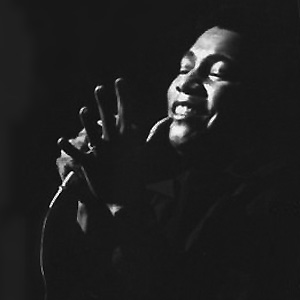
Luther Thomas Ingram was an American R&B and soul singer-songwriter. His most successful record, "(If Loving You Is Wrong) I Don't Want to Be Right", reached No. 1 on the Billboard R&B chart and No. 3 on the Hot 100 in 1972.
Faye Adams, who also performed under the stage names Faye Scruggs and Fannie Jones, is an American former singer who recorded and performed gospel and rhythm and blues. She had several chart hits in the early 1950s, continued to record until the late 1970s, and was also a songwriter.

Otis Verries Hicks, known as Lightnin' Slim, was an American blues musician who played Louisiana blues and swamp blues for Excello Records. The blues critic ED Denson ranked him as one of the five great bluesmen of the 1950s, along with Muddy Waters, Little Walter, Howlin' Wolf and Sonny Boy Williamson.
Overton Vertis Wright was an American singer who is generally regarded as a blues artist by African-American fans in the Deep South; he is also regarded as one of Southern soul's most authoritative and individual artists. His best known songs include "That's How Strong My Love Is" (1964), "You're Gonna Make Me Cry" (1965), "Nucleus of Soul" (1968), "A Nickel and a Nail" (1971), "I Can't Take It" (1971) and "Ace of Spades" (1971).

Marvin Earl Johnson was an American R&B singer, songwriter and pianist. He was influential in the development of the Motown style of music, primarily for the song "Come to Me," which was the first record issued by Tamla Records, the precursor to the famous label.

Malaco Records is an American independent record label based in Jackson, Mississippi, United States, that has been the home of various major blues and gospel acts, such as Johnnie Taylor, Bobby Bland, Mel Waiters, Z. Z. Hill, Denise LaSalle, Latimore, Dorothy Moore, Little Milton, Shirley Brown, Tyrone Davis, Marvin Sease, and the Mississippi Mass Choir. It has received an historic marker issued by the Mississippi Blues Commission to commemorate its important place on the Mississippi Blues Trail.

James & Bobby Purify were an R&B singing duo, whose biggest hits were "I'm Your Puppet" in 1966, which reached number six in the US Billboard Hot 100 chart and in a re-recorded version number 12 in the UK Singles Chart, and "Let Love Come Between Us" in 1967, which reached number 23 in the US. The original "Bobby Purify" was replaced by a second "Bobby Purify" in the 1970s.

Dale Houston was an American singer who in a duo with his performing partner, Grace Broussard, hit the Billboard chart as Dale & Grace with two rock and roll singles. The first was the No. 1 gold record "I'm Leaving It Up to You" in 1963. "Stop and Think It Over" reached No. 8 in 1964. In his later years, Houston was reunited onstage with Broussard on several occasions. Their recordings are highly regarded examples of the Louisiana-Texas style known as "Swamp Pop".
Tommie Young is an American soul and gospel singer from Dallas, Texas, United States.

Henry Gray was an American blues piano player and singer born in Kenner, Louisiana. He played for more than seven decades and performed with many artists, including Robert Lockwood Jr., Billy Boy Arnold, Morris Pejoe, the Rolling Stones, Muddy Waters, and Howlin' Wolf. He has more than 58 albums to his credit, including recordings for Chess Records. He is credited as helping to create the distinctive sound of the Chicago blues piano.
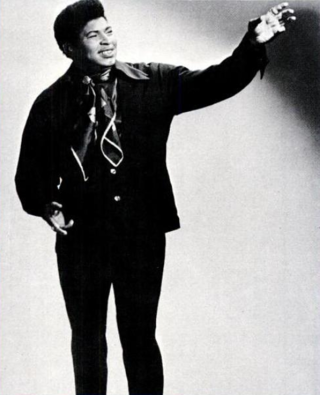
Theodore Taylor was an American blues singer.
References
- ↑ Eagle, Bob; LeBlanc, Eric S. (2013). Blues - A Regional Experience. Santa Barbara: Praeger Publishers. p. 310. ISBN 978-0313344237.
- 1 2 Biography by Bruce Eder, Allmusic.com. Retrieved 4 November 2016
- 1 2 Bobby Powell, "I'm Not Going To Cry Over Spilled Milk", On The Record, May 30, 2014. Retrieved 4 November 2016
- 1 2 Colin Larkin, "Bobby Powell", The Encyclopedia of Popular Music. Retrieved 4 November 2016
- ↑ Whitburn, Joel (1996). Top R&B/Hip-Hop Singles: 1942-1995. Record Research. p. 354.
- ↑ Bobby Powell, Soulwalking.com. Retrieved 4 November 2016
- ↑ Rocktober Music & Arts Festival 17, Visit Baton Rouge [ permanent dead link ]. Retrieved 4 November 2016